
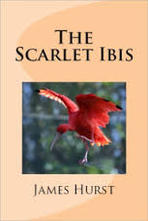 Book cover for "The Scarlet Ibis," by James Hurst.
Book cover for "The Scarlet Ibis," by James Hurst.
Take, for example, the character of Doodle in the widely anthologized short story, "The Scarlet Ibis," published in 1960 by James Hurst. **Spoiler ahead—watch out!** "The Scarlet Ibis" is not YA except in the broadest definition: that it centers on life-changing events in childhood. I taught this story in high school many years ago (through my tears at the end), and my former and current students still teach it today, so it's important to examine this English Language Arts (ELA) staple and its treatment of disability.
Unspoken, Negative Messages about Disability?
In this retrospective story, the non-disabled, narrating protagonist (now an adult) finds moral redemption through the death of the disabled character, his younger brother, Doodle. Scholars David T. Mitchell and Sharon L Snyder call this use of disability in plots "narrative prosthesis," in which disability is "a stock feature of characterization" and "an opportunistic metaphorical device" (47). Most of the "discussion questions" available online about this story focus on the metaphor of the scarlet ibis and its similarity to Doodle. But what message does it send to readers when the character with the disability ends up dead at the end?
Another stereotype to watch out for is what I call the "Rudolf-the-Red-Nosed-Reindeer" character: the unusual or disabled character whom the other characters ignore or ridicule—that is, until this character somehow saves the day at the end, usually because of the thing that is considered unusual (the glowing nose). The negative message here, as Jay Dolmage points out, is that it's okay to have a disability, but only so long as you have a "compensatory ability." Be sure you save the world somehow because of it, or you won't be accepted (39-40).
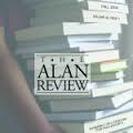
Since books featuring disability are still relatively rare, it's better to find texts that feature realistic characters with agency, who get to tell their own stories, who are "normal" people living full lives. Happily, there are a number of fairly recent disability-themed YA novels, many of which show fully-developed, realistic protagonists with agency and voice. Mark Letcher, in his English Journal Off the Shelves column, which ran from 2008 – 2013, has written about a number of them: The London Eye Mystery, Marcelo in the Real World, Anything But Typical, and more. Several articles in The ALAN Review also discuss YA lit and disability, most notably Menchetti, Plattos, and Carroll's 2011 piece on "The Impact of Fiction on Perceptions of Disability," as well as Jeffrey Kaplan's article on learning disabilities and YA lit. And in Children's Literature in Education, Jen Scott Curwood also analyzes disability in young adult literature. An invaluable new resource is disabilityinKidlit.com, which publishes reviews of YA lit—with reviews always written by writers who share the disability of the protagonist or prominent character in the book. Another great place to find disability-themed texts is Schneider Family Book award site, which searches out high-quality YA and children's books that have realistic characters with disability.
Two YA novels that stand out for their insightful perspective and stance are Peeling the Onion, by Wendy Orr, and Accidents of Nature, by Harriet McBryde Johnson, both of which I analyze in depth in my new book, Disabling Characters: Representations of Disability in Young Adult Literature. Each of these texts is narrated by a character with a disability, and each was written by an author who had an impairment similar to that of her protagonist. What is profoundly refreshing about both of these highly literary and sophisticated novels is that they take a hard look at the society in which the protagonists find themselves, and they examine not the main character's struggle to "overcome" her disability, but society's unreasonable expectation that she do so. I admit that it took a second read for me to "get" what Accidents of Nature was doing, so steeped am I in conventional narratives about what people with disabilities are expected by our society to do. Read them both.
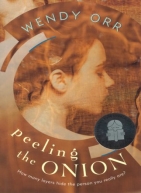
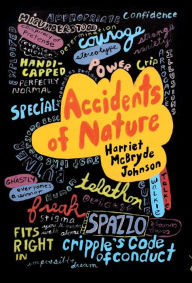
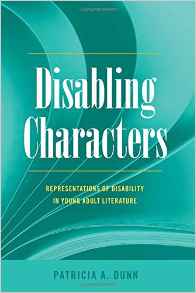

 RSS Feed
RSS Feed